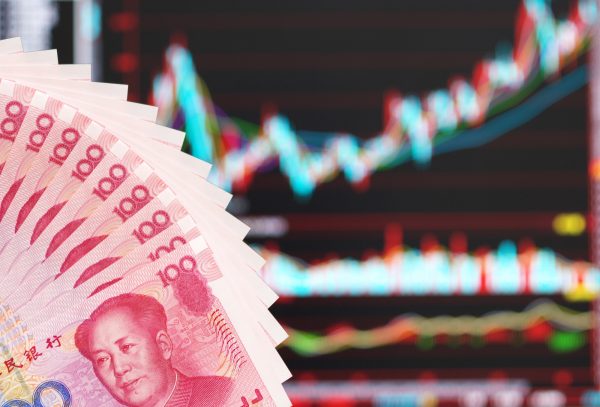Beijing’s resolution final week to bail out a metals billionaire from a disastrous “quick place,” and in doing so tarnish the credentials of the as soon as revered London Metals Alternate, won’t quickly be forgotten. Even earlier than the most recent incident, Western traders had been trying on the painful actuality of losses they face in the case of blindly betting huge on investments in authoritarian regimes who contemplate themselves above established guidelines.
The Chinese language billionaire in query is Xiang Guangda, the founding father of China’s main stainless-steel and nickel producer Tsingshan Holding Group value $4.1 billion. Earlier in March, Tsingshan Holding Group was set to face $8 billion in losses after the worth of nickel doubled to over $100,000 a ton. Xiang, fondly known as “huge shot,” had staked a large quantity of his private fortune shorting nickel, solely to see the worth of the metallic surge to as a lot as 111 % on account of the continuing financial fall-out of Russia’s conflict in Ukraine.
In regular occasions a mistake of this magnitude would put Xiang’s private fortune and the fortunes of Tsingshan Holding Group in serious trouble. Fortunately for him, he has highly effective buddies in Beijing and the London Metallic Alternate was purchased out in 2012 by the Hong Kong Inventory Exchanges and Clearing.
These two information little doubt influenced the London Metallic Alternate’s unprecedented resolution on March 8 to droop nickel buying and selling in a transfer not seen since 1985, canceling 5,000 nickel trades that had been executed that day, and wiping out $1.3 billion of revenue and loss on offers. The subsequent day Shanghai’s Futures Alternate adopted swimsuit and likewise froze nickel buying and selling.
Bloomberg reported that one in all Tiangshan’s brokers, a unit at China Development Financial institution, “narrowly missed defaulting after the LME gave it extra time to pay tons of of tens of millions of {dollars} of calls.”
It has been reported that the Chinese language authorities is backing Xiang and Tsingshan Holding Group to the hilt, ordering home banks to offer additional loans. Some studies say China might even contemplate swapping Tsinghan’s nickel for high-quality reserves held by the Chinese language state. Xiang has stated that along with his authorities’s backing he intends to carry onto his quick place, with the potential even now to show his folly into additional fortune.
The opportunity of Xiang extricating himself from this place shall be an additional purple flag for these traders who consider that the London Metallic Alternate crossed a line by suspending buying and selling and giving up its neutrality in favor of a selected market participant. AQR, one of many largest funds on this planet, is already exploring authorized choices after its buying and selling earnings had been worn out.
Sadly, the metals alternate might have misplaced its neutrality a while in the past. Since being purchased by Hong Kong Inventory Exchanges and Clearing, whose largest shareholder is the Hong Kong authorities, which appoints six of its board members, in 2012 the London Metallic Alternate has more and more relied on enterprise from Chinese language state-owned banks and state supported corporations.
Throughout Xi Jinping’s state go to to the UK in October 2015, the metals alternate signed a memorandum of understanding with seven Chinese language monetary establishments, together with state-run banks – the Financial institution of China and the Industrial and Industrial Financial institution of China – to extend market entry and supply renminbi internationalization service as a part of the Belt and Street Initiative. In April 2016, China Development Financial institution acquired a 75 % stake in MetDist; this made it the primary majority-owned Chinese language financial institution to commerce on the alternate flooring.
For these of us who observe Hong Kong politics intently that is attribute of Beijing’s co-option of capital and companies which can be depending on Communist Get together patronage. In 2021, a report by Hong Kong Watch detailed that regardless of widespread reservations concerning the high quality of mainland audit companies, the Hong Kong Inventory Alternate was pressured to permit mainland auditors to audit the mainland integrated corporations listed on the Inventory Alternate in 2010. In some ways this transfer over time has more and more compromised the town’s regulatory regime.
With rising metallic costs, the strategic worth of the London Metallic Alternate can’t be understated. China dominates world markets because the largest shopper of copper, aluminum, and iron ore. Each home progress and the expansion of its affect abroad by constructing infrastructure tasks within the creating world as a part of the Belt and Street are closely depending on its capacity to safe metals.
On the intersection of those pursuits lies Xiang’s Tsingshan Holding Group, which provides massive volumes of nickel to electrical automobile battery producers at residence, and is one in all China’s flagship corporations delivering Belt and Street tasks throughout overseas. With recorded firm income of $19 billion final 12 months and a sprawling enterprise empire that makes Xiang’s household one of many wealthiest and strongest in Zhejiang, is it any marvel that Beijing believes Xiang is solely huge to fail?
The Monetary Conduct Authority and the Financial institution of England helped the London Metallic Alternate to restart nickel buying and selling final week, in addition to reforms, which can embrace banning quick positions. Nevertheless, the specter of Beijing looms massive and the authorized battles over the safety afforded to Xiang will rage on. This can pull the credibility of the metals alternate additional into disrepute.
With Beijing’s unwavering assist, this “huge shot” may nonetheless make out like a bandit, reinforcing the miserable actuality of who actually controls this alternate and has the facility to manage the metals business.
It’s a additional lesson for these alarmed by the rising affect of authoritarian regimes within the monetary providers business.

